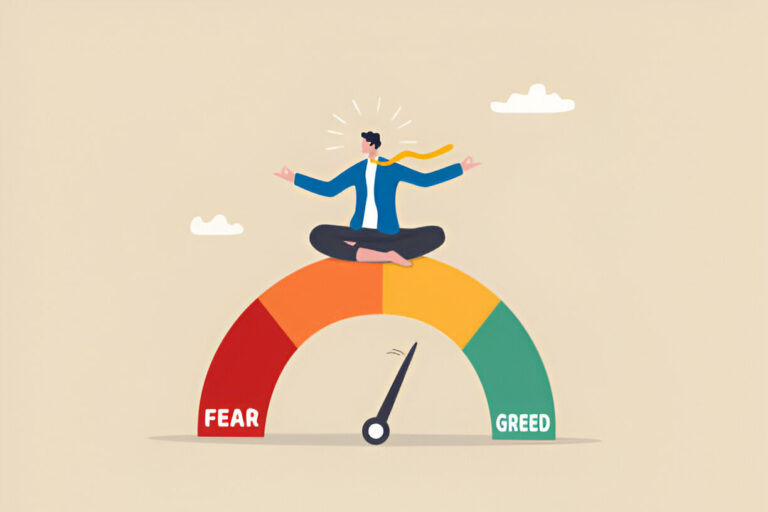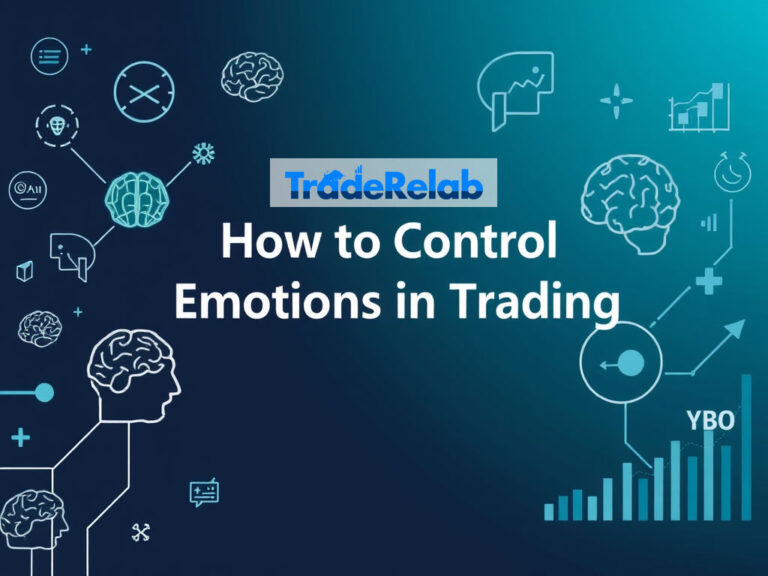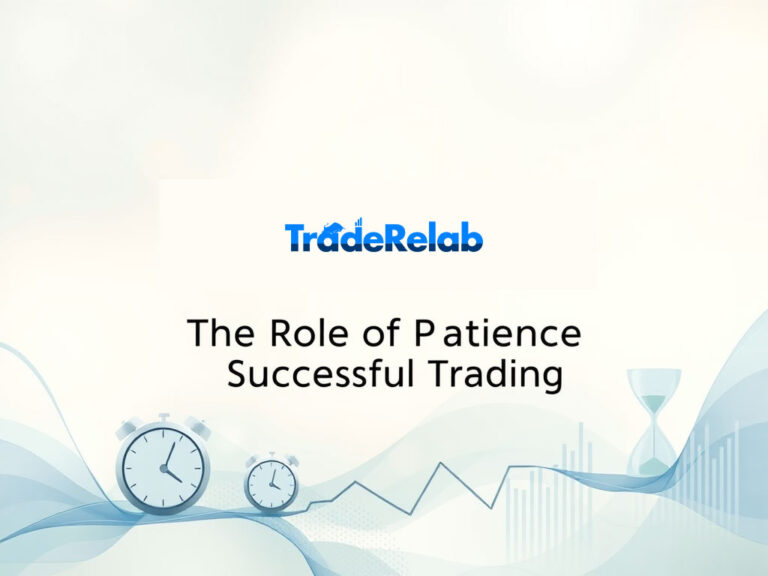How to Stay Disciplined as a Trader

In the world of trading, discipline is one of the most critical factors that separates successful traders from those who struggle to make consistent profits. Trading can be emotionally intense, with markets constantly fluctuating, and it’s easy to fall into the trap of acting on impulse. However, staying disciplined is essential for making sound decisions, managing risks effectively, and ultimately achieving long-term success. In this article, we’ll explore why discipline is vital in trading and provide actionable tips on how to maintain it.

What Does Discipline Mean in Trading?
Discipline in trading refers to the ability to stick to a predefined trading plan, follow established strategies, and avoid impulsive decisions. It involves managing emotions, controlling risk, and adhering to your rules, regardless of how the market is behaving at any given moment. A disciplined trader is patient, consistent, and focused on their long-term goals, rather than being swayed by short-term market movements or emotional impulses.
Why Discipline Is Critical in Trading
1. Prevents Emotional Decision-Making
Trading can stir a range of emotions, including fear, greed, and excitement. These emotions can cloud your judgment, causing you to make decisions based on impulses rather than logic. A disciplined trader understands the importance of controlling these emotions and following their plan.
For example, fear of missing out (FOMO) may lead a trader to enter a position without proper analysis. Similarly, greed might cause a trader to hold onto a winning trade too long, hoping for more profits. Discipline helps to prevent these emotional responses by keeping you focused on your strategy and your risk management rules.
2. Helps Manage Risk Effectively
Risk management is at the core of successful trading, and discipline is key to sticking to your risk parameters. Without discipline, it’s easy to take larger positions than you should, risk more capital than necessary, or ignore stop-loss orders. Over time, this can lead to significant losses.
Disciplined traders set clear risk parameters and consistently adhere to them, ensuring that no single trade jeopardizes their overall capital. This includes determining your position size, using stop losses, and setting risk-to-reward ratios that align with your trading strategy.
3. Prevents Overtrading
Overtrading is one of the most common pitfalls for undisciplined traders. It happens when traders place too many trades in a short period, often due to boredom, emotional impulses, or an attempt to recover from a loss. Overtrading can quickly drain your account, as it increases transaction costs, exposes you to unnecessary risk, and leads to poor decision-making.
Disciplined traders only trade when they meet their criteria, ensuring that each trade is based on a solid plan. They don’t trade just for the sake of trading, and they don’t try to force trades in markets that don’t offer clear opportunities.
4. Ensures Consistency and Long-Term Success
Discipline is the key to consistency. While it might be tempting to jump from one strategy to another, especially after experiencing a loss or a missed opportunity, disciplined traders understand the importance of sticking to a long-term approach. They don’t chase short-term wins but focus on following a well-thought-out strategy over time.
This consistency leads to better risk management, fewer emotional decisions, and ultimately, long-term profitability. Traders who lack discipline often experience a cycle of wins and losses that averages out over time, while disciplined traders can achieve sustainable growth in their accounts.
Tips for Staying Disciplined as a Trader
1. Create a Comprehensive Trading Plan
A solid trading plan is the foundation of discipline. It outlines your trading goals, risk tolerance, strategies, and rules for entering and exiting trades. Having a plan helps you stay focused and prevents emotional decision-making. A trading plan should include:
- Entry and exit criteria: Determine the conditions that must be met before you enter a trade and how you will exit.
- Risk management: Set your stop-loss and take-profit levels for each trade and stick to them.
- Trading hours: Establish when you will trade to avoid impulsive decisions during off-hours.
- Position sizing: Determine how much of your capital you will risk on each trade to maintain consistency.
2. Follow a Routine
A consistent routine can help you stay disciplined. This might include setting aside specific times for analyzing the markets, placing trades, and reviewing your past performance. A routine helps eliminate distractions and reinforces a disciplined approach to trading.
Additionally, a routine allows you to focus on continual learning and improvement. Successful traders regularly review their performance, identifying strengths and weaknesses to improve their strategies and decision-making over time.
3. Limit the Number of Trades
One of the key aspects of discipline is knowing when not to trade. Set a limit on how many trades you will take within a week or month, and stick to that limit. Avoid the temptation to make multiple trades just for the sake of being active in the market. Remember that it’s not the quantity of trades that matters, but the quality.
By limiting the number of trades, you ensure that each one has a clear justification and is aligned with your strategy. This approach also helps to keep emotions in check, as it reduces the need to chase opportunities.
4. Control Your Emotions
Emotions are a natural part of trading, but they can be detrimental if left unchecked. A disciplined trader knows how to manage emotions like fear, greed, and excitement. Some techniques to control emotions include:
- Take breaks: If you’re feeling overwhelmed or frustrated, step away from the computer. A short break can help you reset and return with a clearer mindset.
- Use meditation or mindfulness: These practices can help you maintain mental clarity and composure when trading.
- Track your emotions: Keep a journal of your trades and the emotions you were feeling during each trade. This can help you identify patterns and work on improving your emotional control.
5. Focus on the Long-Term
Trading is not a get-rich-quick endeavor. Successful traders understand that it takes time, patience, and consistency to grow their accounts. Focus on the long-term results rather than short-term wins. Set realistic goals and expectations, and don’t be discouraged by occasional losses.
By focusing on the big picture, you’ll avoid the temptation to make impulsive decisions and remain disciplined in following your strategy.
6. Learn From Your Mistakes
Every trader makes mistakes. The key to staying disciplined is learning from those mistakes and improving your approach. After each trade, whether it’s a win or a loss, take the time to review what happened. Ask yourself:
- Did I follow my trading plan?
- Did I let emotions influence my decision-making?
- What could I have done differently?
By reflecting on your trades, you can continuously improve and refine your discipline, ensuring that you’re better prepared for future trades.

Conclusion
Staying disciplined as a trader is essential for long-term success. It helps you manage your emotions, stick to your strategy, avoid overtrading, and consistently follow your risk management rules. Trading requires patience, self-control, and a commitment to continuous improvement. By implementing a well-thought-out trading plan, establishing a routine, and learning from your mistakes, you can build the discipline necessary to navigate the complexities of the markets and achieve consistent profitability.
FAQ:
1. How can I develop discipline in trading?
Discipline in trading comes from creating a solid trading plan, sticking to it, managing your emotions, and consistently reviewing your performance to learn from your mistakes.
2. Why is overtrading harmful to traders?
Overtrading leads to emotional decisions, increased risk, and higher transaction costs. It often results in losses due to taking unnecessary or impulsive trades.
3. How can I avoid emotional trading?
You can avoid emotional trading by sticking to a well-defined trading plan, setting clear risk management rules, and taking breaks when you feel overwhelmed.
4. What should I include in my trading plan?
Your trading plan should include entry and exit criteria, risk management rules, position sizing, and your trading goals. It’s important to follow your plan consistently.
5. How do I stay focused on long-term goals in trading?
Focus on the bigger picture by setting realistic expectations, avoiding short-term impulses, and measuring your success over a longer period rather than individual trades.






